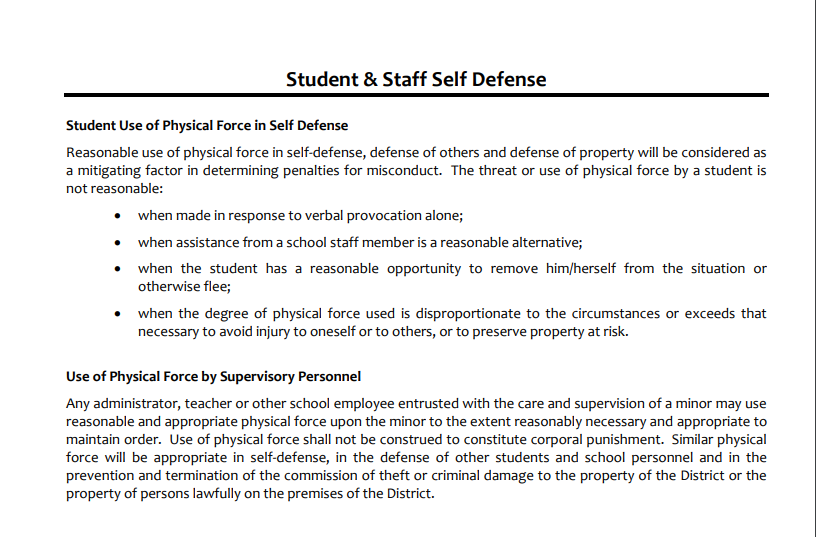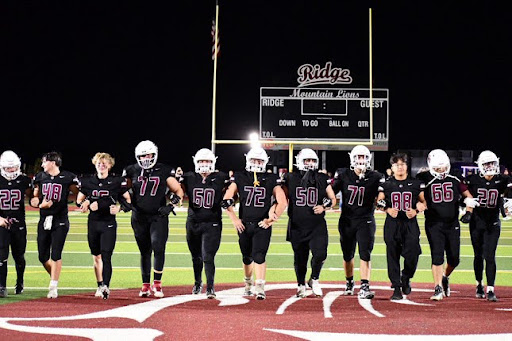Student Self-Defense
February 14, 2018
I am a second degree black belt in Taekwondo, and I’ve been training for nearly seven years. I have learnt all sorts of self-defense and was always taught to defend myself when attacked. However, I also know not to fall back on the use of violence unless aggravated. When I, along with many others, have been taught to defend ourselves, why do schools enforce punishments on those who do?
The issue of student and staff self-defense in schools has been a long standing issue as it is unclear and unfair. The Mountain Ridge Rights and Responsibilities states that consequences will be given “when the student has a reasonable opportunity to remove him/herself from the situation or otherwise flee.” Often, during fights, students don’t have the opportunity to escape, and they are sometimes even surrounded by curious students. Whether or not they had the opportunity to flee then becomes subjective because the administration relies on witnesses to relay the details of the fight before making their final decision. How will a group of non-present people be able to effectively decide whether a student had the “opportunity to remove him/herself from the situation”?
In Taekwondo and many other self-defense classes, students are to run away before trying to defend themselves because avoiding physical contact is always better than violence. Sometimes, however, the circumstances in which a student are in require fighting back and do not have a simple solution of escaping. The Rights and Responsibilities highlights these issues, stating that consequences are enforced “when the degree of physical force used is disproportionate to the circumstances or exceeds that necessary to avoid injury to oneself or to others, or to preserve property at risk.” Who is to decide if the victim’s violence was proportionate to the attacker’s? This rule book provides an unclear, subjective view of the consequences of student self-defense.
The underlying message in these Rights and Responsibilities is that a student must consider the consequences that their self-defense is certain to have. It teaches students to value their education over their safety and well-being. As someone who has learnt self-defense for nearly half her life, I feel that my years of training have gone to waste. Why learn how to defend myself when I can’t even use it in a real situation? If I am attacked at school, I don’t want to be worrying about the consequences I could face for fending for myself. The school should recognize that student safety is more important than student education.
I understand that these consequences are put in place to avoid greater danger and violence, and in no way do I support violence of any sort. However, the victim’s safety should not be put at risk because the attacker’s well-being is more cared for. We need a change to these Rights and Responsibilities to make them clearer and more reasonable.






